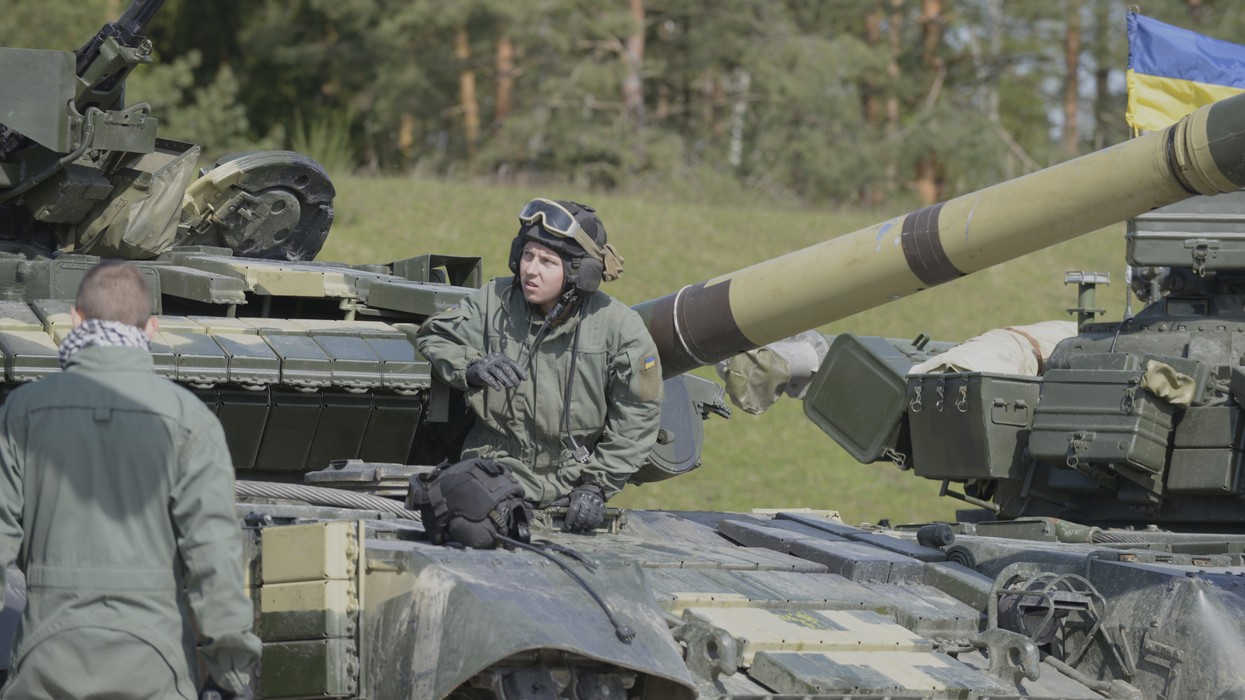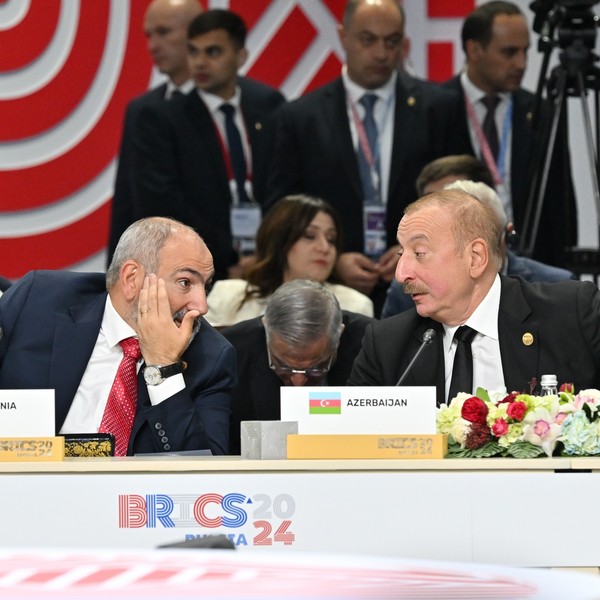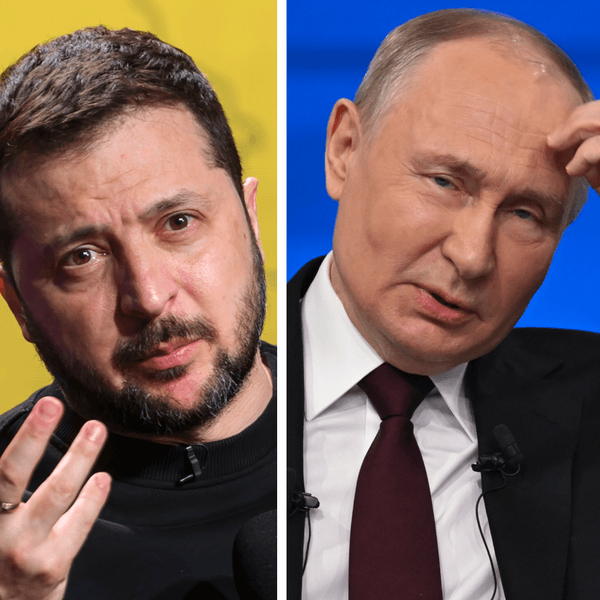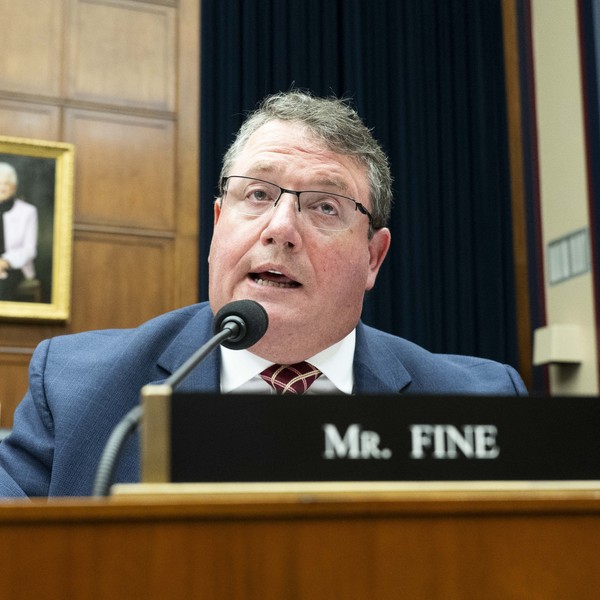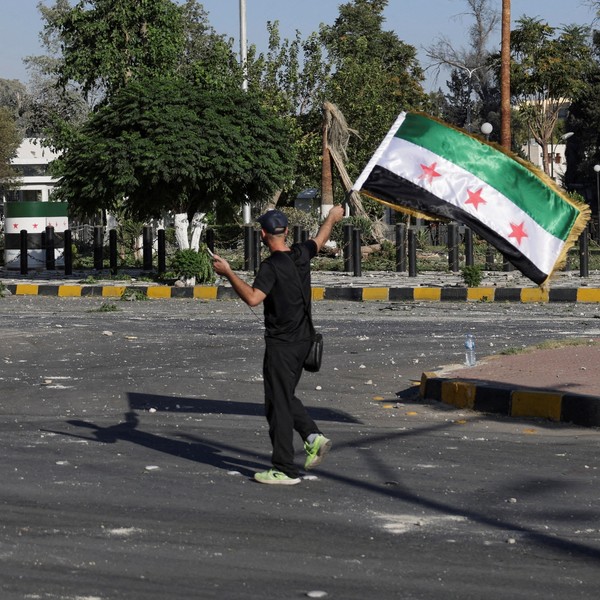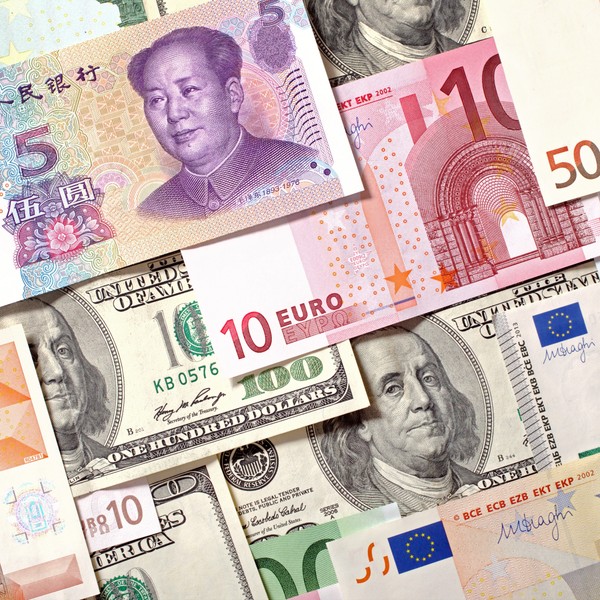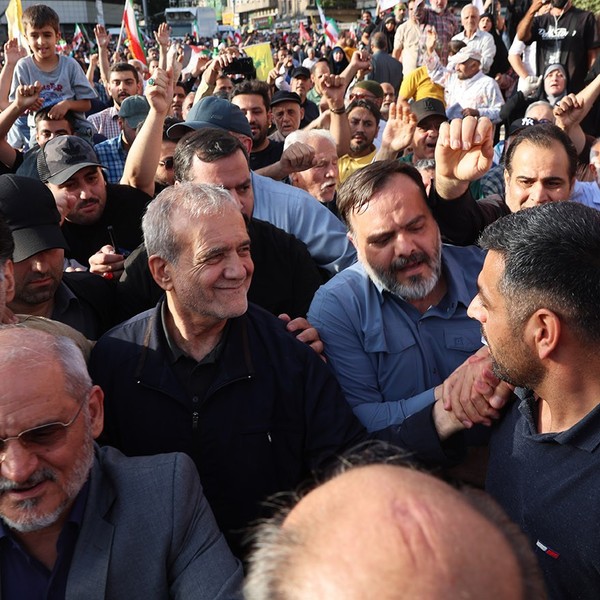It’s not every day that the United Arab Emirates and Iran back the same side.
But the UAE seems to be wooing the Patriotic Union of Kurdistan, an Iraqi Kurdish opposition party with close historic ties to Iran. Last month, the Arab monarchy flew in six tons of coronavirus aid to the Patriotic Union stronghold of Sulaymaniyah, eliciting public gratitude from the party.
The aid seems to be aimed at undercutting Turkey’s influence in Iraqi Kurdistan. The Turkish-backed Iraqi Kurdish government had reportedly banned money transfers from the UAE without special approval earlier in the month.
This tug-of-war over Iraqi Kurdistan is part of a wider cold war between Turkey and the Saudi-led bloc of monarchies — a Middle Eastern rivalry often overshadowed in Washington by the Saudi-Iranian conflict. U.S. policymakers and analysts focused on Iran have treated the Saudi-Turkish cold war as a distraction, or tried to subsume it into the struggle with Tehran.
But the Saudi-Turkish rivalry is no sideshow. Turkish-backed forces in Libya recently smashed UAE-backed forces in a bloody military offensive, and pro-Turkey media is hinting that Ankara could turn its attention to Yemen next.
Washington will be surprised by more chaos and instability if it does not take the Saudi-Turkish conflict as seriously as the Saudi-Iranian rivalry. Iran, Turkey, and the pro-Saudi bloc are all separate contenders for regional dominance in their own right, and all three of them have serious conflicts with the others that can turn to bloodshed.
This three-way rivalry can be difficult to see, because both Turkey and the pro-Saudi bloc are both supposedly on the side of the United States.
Saudi Arabia's close ties to Washington are well-known, and the kingdom remains America’s largest weapons customer.
Turkey has also been an important part of the U.S.-led security architecture in the region as the easternmost NATO ally. The military airport in İncirlik, Turkey has hosted a U.S. nuclear deterrent since the 1960s, and became a key logistics hub for U.S. operations in Iraq beginning in 1991.
Throughout the whole period, U.S. support helped Turkey win its bloody conflict with Kurdish insurgents. The United States provided Turkey with $10.5 billion in arms from 1984 to 1999, along with diplomatic and intelligence support.
Qatar joined Turkey as a key U.S. military hub after the 1991 war, building a base at Al Udeid that has since grown to be the main headquarters for U.S. Air Forces Central Command.
This unified pro-U.S. bloc started to break up during the Arab Spring. Qatar and Turkey threw their lot in with Islamist-populist forces in many countries, while Saudi Arabia and the UAE backed established autocrats. Tensions simmered quietly until 2017, when Saudi Arabia outright blockaded Qatar.
The longtime U.S. support for both sides has led some in Washington to view the Saudi rivalry with Turkey and Qatar as a temporary hiccup in an anti-Iranian united front.
Michael Doran, a senior fellow at the Hudson Institute whose views seem to have influenced the Trump administration, has said that the U.S. task in the Middle East is to bring Israel, Saudi Arabia, and Turkey together within “a general vision of order in the region” in order to pursue the “number one goal” of weakening Iran.
This seems to be the policy of the Trump administration, which has repeatedly tried to goad Turkey into a confrontation with Russia and Iran over Syria.
U.S. officials have similarly tried to calm down the Saudi-Qatari rivalry, pressing Saudi Arabia to end its years-long blockade of Qatar.
But recent U.S.-Turkish tensions have made it harder to portray Turkey as a good U.S. partner. Turkey purchased sensitive military technology from Russia and attacked the U.S.-backed, Kurdish-led coalition in Syria last year, prompting many in Congress to call for sanctions.
Turkish banks have also defied the U.S. economic sanctions campaigns on Iran, Venezuela, and other actors. Turkey and Qatar have both been accused of helping finance and shelter Palestinian militants whom the United States and Israel consider terrorists.
Some analysts have taken this to mean that Turkey is a turncoat ally, now fully aligned with Iran in the region.
The Foundation for Defense of Democracies, whose experts have worked with the White House on the maximum pressure campaign against Iran, has been at the forefront of pushing this view.
CEO Mark Dubowitz put it the most bluntly in a Twitter post: “Erdogan’s Islamic Republic in Turkey is like Khamenei’s Islamic Republic in Iran.”
But the differences between Iran and Turkey are no sideshow, either. Turkish forces reportedly attacked Iranian positions during a Turkish-Syrian military escalation in March, and close Turkish ally Azerbaijan has built a security relationship with Israel that leaves Iran feeling threatened.
Iran and Turkey have cooperated against Kurdish militants at times, but both also blame one another for Kurdish insurgent attacks when tensions flare up.
Nor has Turkey fallen completely into Russia’s arms. For all Ankara’s sabre-rattling, it continues to both support and benefit from America’s nuclear umbrella.
Saudi Arabia and the UAE, meanwhile, worked with Russia and Syrian ruler Bashar al-Assad in their attempt to thwart Turkish and Qatari ambitions in Libya.
And, as recent events in Iraqi Kurdistan show, they may even be willing to reach out to pro-Iranian factions against a common Turkish threat. Iran’s third-largest export partner may be Turkey, but its fourth largest is the UAE.
The hawks’ focus on Iran has an analogue among doves, who tend to zero in U.S. support for Saudi Arabia as the driver of instability in the region.
Progressive Democrats like Bernie Sanders and Ro Khanna have made great strides in pushing to stop U.S. involvement in Yemen, which has empowered Saudi Arabia to pursue a blood-soaked air and ground campaign.
And a variety of progressive groups have kept up the public conversation on U.S. blank checks to Saudi Arabia and the UAE, which “intervene across the Middle East and North Africa to stop democracy and promote dictatorship.”
But there is little media attention or public pressure from the Left against the other U.S.-backed bloc in the region, which has been exporting anti-democratic forces of its own.
Many of the Islamist parties backed by Turkey and Qatar are similar types of reactionary populists to the right-wing nationalist movements of contemporary Europe. On a darker note, Turkey and Qatar have cultivated and exported proxy militias that kidnap and kill local democratic reformers.
The UAE bid for influence in Iraqi Kurdistan also comes as Turkey continues its regional push against the Kurdish-led militant Left. Turkey has been launching air and ground offensives to root these militants out in Iraq, often with direct U.S. support, since the 1980s.
Qatar and Turkey now form a separate bloc that is neither totally aligned with nor totally opposed to U.S. interests in the Middle East. The concerns of this bloc—and its opponents—are often unrelated to the Saudi-Iranian conflict.
In other words, the Middle East is not a seesaw. It is a three-legged stool.
Any U.S. strategy towards the Middle East — hawkish, dovish, left, right — has to contend with all three legs. Anything less will collapse under its own weight.



